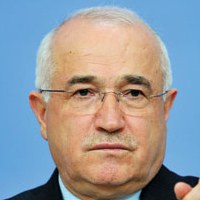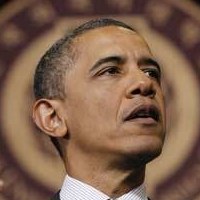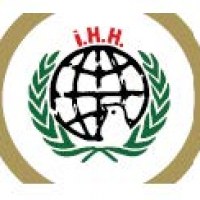![]()
Mon, Feb 20, 2012 | By Richard Weitz
This article was first published in the Turkey Analyst, vol. 5 no. 4 (www.turkeyanalyst.org), a biweekly publication of the Central Asia-Caucasus Institute & Silk Road Studies Program Joint Center. © Central Asia-Caucasus Institute & Silk Road Studies Program Joint Center, 2012.
Turkish Foreign Minister Ahmet Davutoğlu has just completed a well-timed visit to Washington. Although many issues arose during his multi-day rounds of meetings with congressional and executive branch figures, the topic that invariably drew the most attention in public, and likely in private, was what to do about Syria now that the diplomatic initiatives have been exhausted. Turkey and the United States have been aligning their policies toward Syria throughout the crisis, and Washington expects Turkey to assume a leading public role in any future initiative in its southern neighbor. Yet no specific new initiatives were announced by either party during Davutoğlu’s Washington visit. As has been indicated by Turkish and U.S. diplomats, the U.S. and Turkey prefer to consult with other governments also seeking a firmer stance toward Syria before committing to a concrete action plan.
Background
White House Deputy National Security Adviser Ben Rhodes told reporters in November 2011 that the U.S. administration has “been in very close contact with the Turkish Government about each” step they take regarding Syria and that the White House consulted “with Prime Minister Erdoğan in advance of the President making the decision to call for Bashar Assad to leave power, and in advance of the very robust sanctions that we put on the Syrian regime.”
When the Arab Spring unrest spread to Syria in March 2011 Turkey and the United States first sought to induce the regime of Bashar al-Assad to introduce the reforms demanded by the moderate protesters. The Obama administration initially refused to recall the U.S. Ambassador from Syria, while Turkish Foreign Minister Davutoğlu met frequently with Syrians to promote a reform solution. But after Assad ignored their advice, offered only fig-leaf reforms designed to divide the opposition and perhaps win some foreign support, and proved unwilling to halt the escalating violence, which has now claimed the lives of some 6,000 Syrians, Washington and Ankara broke completely with the Syrian regime and called for Assad’s removal. They have since imposed various sanctions on Syria. Both governments have expressed irritation at Russia and China for blocking the UN Security Council from supporting the Arab League peace plans that mandate an end to the violence and a genuine political reform process that would include Assad’s resignation.
Although Turkey and the United States have followed similar paths regarding Syria, the journey has proven far costlier to Turkey. Bilateral trade between Turkey and Syria reached $2.5 billion in 2010, making Turkey Syria’s largest trading partner, but has since collapsed, as have various Turkish visions of establishing a free trade agreement, a customs union, or other region-wide economic structures. Turkey’s “zero-problems” policy toward neighbors has been negated, while even Arabs backing Ankara’s harder stance toward Syria have expressed unease at the possible revival of neo-Ottomanism. In contrast, the United States has few diplomatic or economic ties with Syria or its foreign allies, so has lost little by calling for Assad’s overthrow, imposing additional sanctions on his regime, and denouncing his foreign backers.
The refugee issue is pressing Turkey to act sooner rather than later. Already 20,000-30,000 Syrian refugees have fled to Turkey. As both countries share an 850-km border, the flow of Syrian refugees into Turkey will continue commensurate with the scale of the violence in northern Syria, which explains Erdogan’s comment that “Syria is Turkey’s internal affair.” Turkish authorities fear that the Syrian crackdown will lead to mass refugees on the scale of those that followed the 1988 Enfal operation in Iraq.
Implications
Turkey and the United States have to weigh the costs and benefits of several plausible next steps regarding Syria now that their unilateral diplomatic and other initiatives have failed to end the Syrian violence while Moscow and Beijing are blocking stronger action inside the UN Security Council, including an Arab League proposal to send UN peacekeepers to Syria.
Prime Minister Recep Tayyip Erdoğan told the Turkish parliament that, following the “fiasco” of failure of the UN Security Council to endorse the Arab League’s peace plan, “We are going to start a new initiative with those countries that stand by the people, not the Syrian government. We are preparing this.” This “coalition of the willing” has already decided to take the easiest step, which is to formalize their collaboration by establishing a Friends of Syria Group. It will hold its inaugural meeting in Tunisia on February 24.
Foreign Minister Davutoğlu said the Tunisia meeting “will be an important international platform to show solidarity with the Syrian people, and to send a strong and clear message to the Syrian regime, that they cannot continue these violent policies,” but to have any such impact the participants will need to go beyond issuing joint declarations and adopt some concrete measures.
One urgent task would be to help unify the disparate Syrian opposition factions. Their lack of unity is a major reason why the Assad regime still enjoys much support among Syrians who prefer the devil they know. The Turkish authorities have allowed members of the opposition Syrian National Council and the Free Syrian Army to organize on Turkish territory, but the Friends Group might demand better integration, as well as the exclusion of Islamist extremists, before allowing them to relocate their operations to any safe havens inside Syria. Influential American politicians have been calling on the United States to provide military assistance to the Syrian opposition, but White House spokesman Jay Carney said “we are not considering that step right now.”
Even without the support of the armed Syrian opposition, Turkey could establish a border buffer zone inside Syrian territory where refugees could relocate without entering Turkey. Turkey set up a similar zone in northern Iraq in 1991, which allowed more than a million Iraqi Kurds to escape Saddam Hussein’s expected retribution for their failed 1991 uprising, which followed Iraq’s defeat in the Kuwait war. But Turkish officials would need to offer military guarantees to protect the displaced people from the Syrian military.
But it is less clear that Turkey would be willing to unilaterally employ force in Syria without some authoritative regional organization backing it. The Arab League might be able to produce a suitable legitimizing document, but some of its members are strongly opposed to the use of military force against Syria. If Turkey did intervene military, the Obama administration would likely again follow its “lead from behind” strategy and, as in Libya, provide primarily low-profile intelligence and logistics support for the Turkish military. Despite the protestations of NATO Secretary General Anders Fogh Rasmussen that the alliance would avoid having any military role in Syria, NATO might provide some discreet support while hanging back to avoid giving the appearance that it was reprising its Libya role and had become the West’s preferred tool for collective military intervention against Muslim regimes they oppose.
Turkish officials have not publicly excluded a military option. “At this moment in time we are talking about diplomatic and humanitarian steps that need to be taken,” Davutoğlu told the Washington media.” But as for other scenarios, we hope that such things will not be required, but we need to think about contingencies as well.”
More likely, Ankara and Washington are considering for now only applying the model used in Iraq and the former Yugoslavia in the 1990s and creating no-fly zones, safe havens, and humanitarian corridors to protect Syrian civilians and their armed supporters while they receive international deliveries of food, water, and medical supplies. According to the Turkish daily Sabah, Davutoğlu reportedly expressed interest in a corridor that would extend from the sea, perhaps even to Cyprus, rather than the Turkish border. But the lesson of the 1990s is that, unless backed by air strikes and robust ground forces, the adversary will not respect these protection instruments.
The Syrian regime is however not without means to retaliate for whatever measures Turkey adopts in support of Assad’s opponents. In partnership with Iran, the Syrian government could resume its pre-1998 providing extensive support for the Kurdistan Workers’ Party (PKK). Many PKK operatives were born or based in Syria. Already there are suspicions that the upsurge in PKK attacks against Turkish targets last summer was a Syrian-Iranian warning to moderate Turkey’s pressure on Assad. Even excluding the PKK factor, a Turkish decision to take up arms on behalf of Assad’s opponents risks labeling Turkey as a regional champion of Sunni Arabs, despite Turkish efforts to define the Syrian crisis as an humanitarian issue rather than a sectarian one. But Ankara will also have to take into account that a continuation of the Syrian fighting risks provoking a wider sectarian war that will hurt Turkey even if its troops refrain from intervening in Syria.
Conclusions
Turkish and U.S. officials seem to recognize that, even if the entire regime collapses in Syria, the result is less likely to be a gentle transition to a liberal democracy than fighting among the elements of the winning coalition over their division of the spoils, with other neighboring countries, such as Iran and Israel, having a strong incentive to intervene on behalf of local proxies. The regime’s repressive policies have succeeded in polarizing the situation and are confronting outsiders with a choice between accepting a continuation of the current regime and backing opposition forces that are becoming increasingly hard-line and violent in their own right.
Turkey and the United States have been aligning their policies toward Syria throughout the crisis, and Washington expects Turkey to assume a leading public role in any future initiative in its southern neighbor. Yet no specific new initiatives were announced by either party when foreign minister Ahmet Davutoğlu visited Washington last week. As has been indicated by Turkish and U.S. diplomats, the U.S. and Turkey prefer to consult with other governments also seeking a firmer stance toward Syria before committing to a concrete action plan.
Richard Weitz, Ph.D., is Senior Fellow and Director, Center for Political-Military Analysis, Hudson Institute, Washington, D.C.



 RSS
RSS












Latest Comments
Hello Mike, Thank you for your positive feedback to the article. I felt there wasn’t too much critical analysis of ...
Thanks for this considered and well constructed article. A follow up article on the manner in which the editorial contro...
THE CLUELESSNESS OF CLAIMING THAT OBAMA'S MIDDLE EAST POLICIES WERE A FAILURE CANNOT BE FURTHER FROM THE TRUTH, WHAT THE...
As long as Obama is the president of the usa do not trust the us government......
Thank you for an good read....